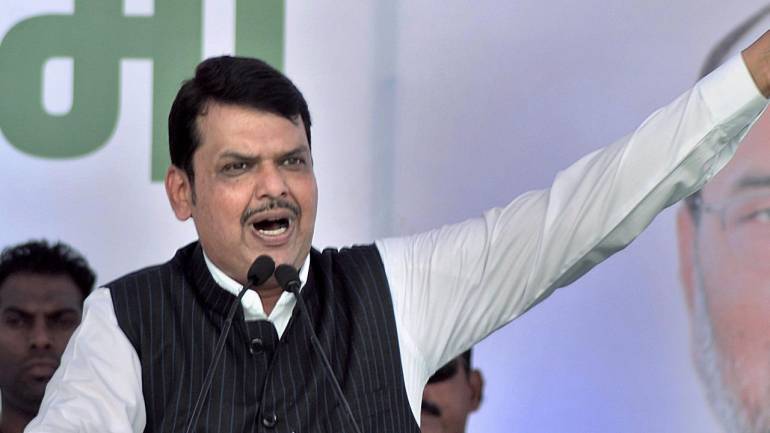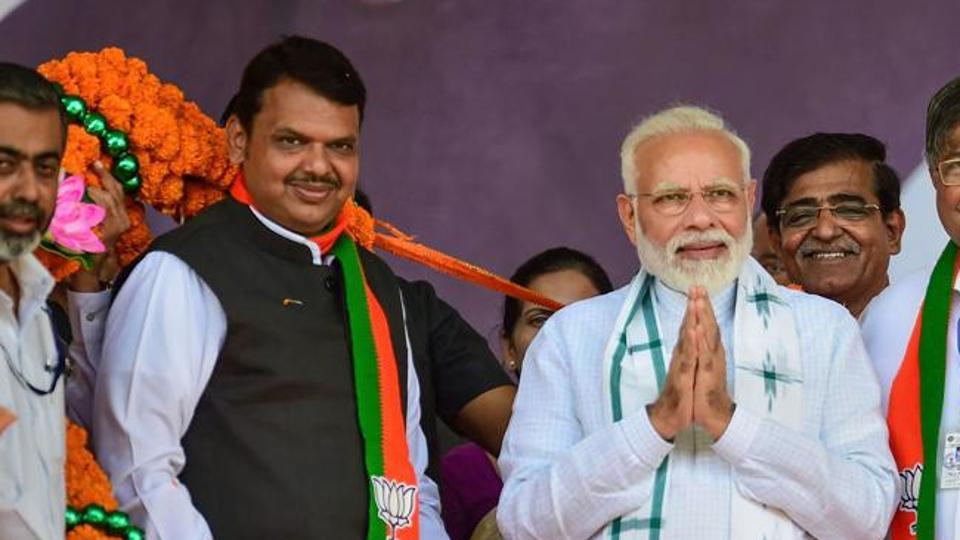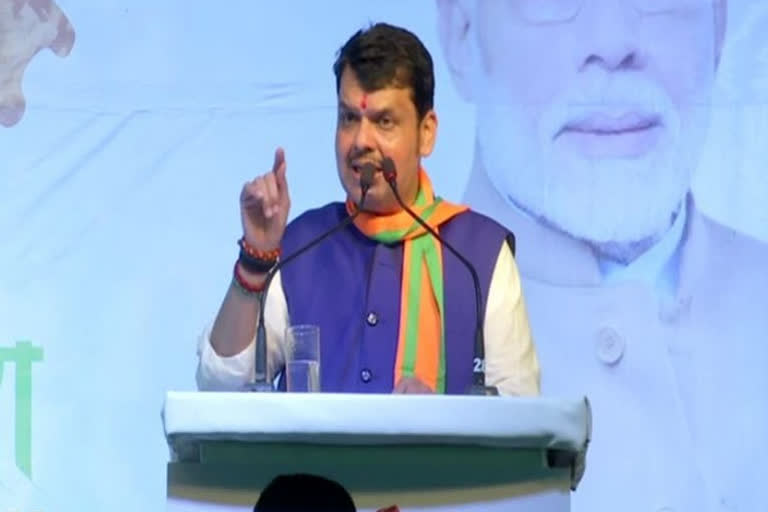Hyderabad: The year was 1978. Sharad Pawar was about to break away from Congress to form a new government. They were to take the support of the Janata Party.
Since the Janata Party was the single largest party then in the assembly everyone was expecting that its respected leader and veteran Socialist S.M. Joshi should become the chief minister. But Joshi backed out saying that Maharashtra will not accept Brahmin chief minister.
Consequently, despite being a major partner in a coalition, the Janata Party supported Pawar (38) to become the youngest chief minister of the state.
Incidentally 17 years later, another Joshi in the form of Manohar Joshi of Shiv Sena took over as a first Brahmin and first non-Congress Chief Minister of the state in 1995. Since he was the choice of Balasaheb Thackeray, nobody could question or cast aspersions on him.

Second Youngest Chief Minister
History repeated after 19 years again, when Narendra Modi nominated Devendra Fadnavis as the chief minister of Maharashtra. Devendra, at 44, became the second-youngest (and also second Brahmin) Chief Minister of the state.
Incidentally, he is also the only second chief minister to complete five years in the office (in one stint) in the past 60 years.
In the past five years, Fadnavis has attained success in many things and failed on the few fronts. But one of his biggest achievement is that he will no longer be seen or criticised through the prism of his caste. In a state like Maharashtra, which has seen the dominance of Marathas (upper peasant caste which constitutes about 30 per cent of the state's population) and of late OBCs, all along, this certainly a great watershed moment.
Narendra and Devendra

Fadnavis is a man of great intellect and possesses a sharp mind and memory. No wonder he attained so many things in so few years. At 21 he became the youngest corporator and at 27 the youngest mayor of Nagpur municipal corporation. And when in 2014, he became the chief minister, though he had been an MLA thrice, he never had worked as a minister in the state cabinet. This is more like Narendra Modi, who before becoming Prime Minister had never been an MP nor worked as a minister at the centre.
And just like Modi, Fadnavis established his command over the matters relating to governance and politicking, within no time.
At the beginning of his stint five years ago, BJP did not have a majority in the assembly. As BJP and Shiv Sena had fought separately the election had seen a lot of bad blood. And within the party, Devendra had many competitors as there were many aspirants of the top post, who were far senior to him at the party. Fadnavis handled both these challenges very skillfully.
Checkmating Shiv Sena
While dealing with Shiv Sena, he kept the channels of discussion open. Simultaneously, he worked on plan B, by which he started wooing some of the influential leaders in Shiv Sena and offered them to join BJP. When Uddhav Thackeray finally realised that if he decides to stay in the opposition, there was a possibility of a big split in the party, which he could not afford. In the end, Sena joined the government after about one month without gaining anything. It got the less important ministries.
Subsequently, though, Shiv Sena kept on criticising its own government in general and Narendra Modi, Amit Shah and Fadnavis in particular for about four years. Later it decided to fight municipal elections separately. Fadnavis took it head-on and trounced Sena and other opposition parties completely. Even, in Mumbai, Shiv Sena's bastion, BJP stopped just short of clinching the power. That was a big blow to Sena, because of which it mellowed down considerably.
Issues that did not matter
Secondly, it was simply astounding the way he handled far more experienced Opposition than him. It would sound exaggerating, but it is true, that, in the past five years, there was not a single instance, when the battery of Opposition leaders could put Fadnavis in a spot or push him to backfoot.
Within a year of forming the new government, spurious liquor claimed more than 100 lives in Mumbai. The opposition had a chance. But Fadnvis acted swiftly suspended eight police officers. Incidentally, Fadnavis has kept the Home portfolio with him, just the way Modi has done it when he was Chief Minister of Gujarat.
Later, there had been a spate of crime incidents in his hometown. So much so that Nagpur was dubbed as Crime Capital by the media. But the Opposition could not exploit it at all. Nobody could prove any negligence or undue influencing by the Chief Minister in it.
In the five years, twice there was a drought-like situation in many districts. Fadnvis's own pet scheme of water conservation seems to have yielded no result in the districts of Marathwada. Somehow Fadnavis successfully convinced the people at large that “since there are no rains no water could be saved.”
Owing to a lot of agrarian stress, the state saw a lot of agitations of farmers from 2016 onwards. Farmers gave a strike call, which was unprecedented. But Fadnavis managed to get over this situation by announcing the loan waiver scheme. Here again, he showed how extremely flexible he can be at times. Because he was totally opposed to the idea of such waiver and iterated his position publically a number of times. Ultimately he had to agree because of the pressure from party high command.
Another issue was that of Maratha reservation. Congress has tried to solve it. But the decision could not stand the test of the Supreme Court. But Fadnavis, being a law graduate himself, sat personally with the experts for hours and negotiated through the legal jungle very skillfully. Today, he can rightfully claim that he has given the reservation which has even been upheld by the High Court.
A lot of churning happened during this period. Maratha organisations took out morchas of lacs and lacs of people. Many felt that the Sharad Pawar was behind them and NCP will gain from the unrest against the government. But ultimately, it does not look like happening so.
And that leaves us to talk about his competitors within the party. Going by the way the ticket distribution of BJP has happened in the state for the coming election, Fadnavis has wiped out them all completely.
Eknath Khadse, Vinod Tawade have not got the tickets. This was unthinkable till yesterday. But Fadnavis has done this. The other major ministers like Prakash Metha and Chandrashekhar Bavankule have been omitted. He has silenced his other opponents or those having allegiance to Nitin Gadkari, in his own way.
In nutshell, Fadnavis has emerged as one of the powerful leaders and administrators in BJP. And in every likelihood, sooner or later he will shift to the Center.
Fadnavis is from Nagpur, the headquarter of RSS. His entire family is associated with RSS. He is young, energetic and dedicated to the party. So all things are on his side. If his party continues to be popular the way it is now, Fadnavis could be seen scaling up a lot many heights of successes and may even reach the top.
But at the same time, a note of caution must be added. Despite all his successes, he still can not be considered a mass leader. Minus the Modi's charisma and Party's popularity he may not be there, where he is today.
Also, read: Death toll rises to 104 amid protests across Iraq



